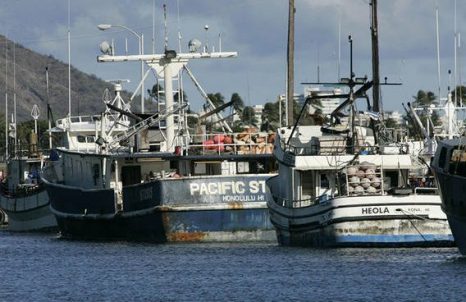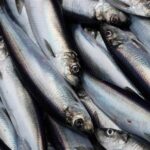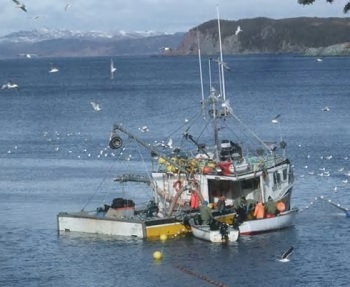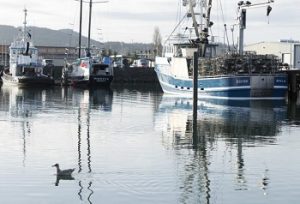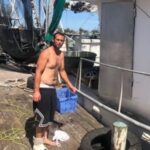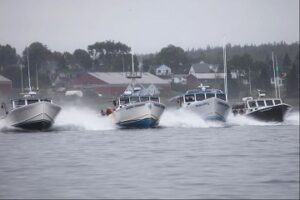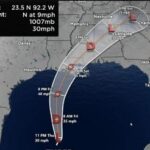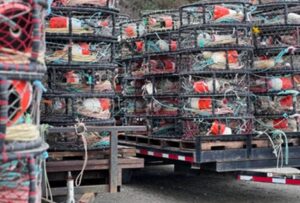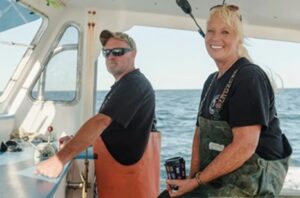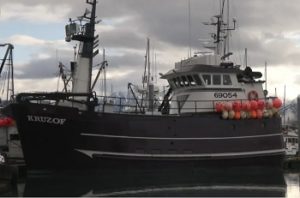Daily Archives: September 8, 2018

Canadian lobster exporters feel ripple effect of U.S.-China trade war
The United States-China trade war is creating choppy seas for Canada’s lobster exporters. It has led to the dumping of Maine lobster — now priced out of China — in other Asian markets and Europe, said Jack Liu, president of North American operations for Zoneco, a large Chinese seafood company with a Nova Scotia operation. Dumping is when a country or company exports a product in a foreign market at a price that is lower than the price in the exporter’s domestic market. “All of a sudden they lost the Chinese market due to the 25 per cent tariff and what are they going to do? They are going to dump those amount of lobster into other parts of the world market. We have seen that,” said Liu. >click to read<19:08
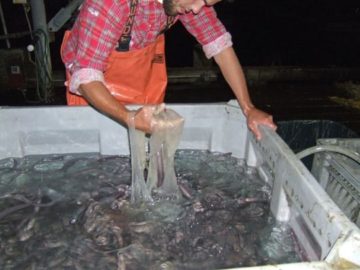
‘Slime eel’ massacre caused by Washington man’s boat accident, lawsuit says
An Oregon boater is in a bit of a mess after he caused thousands of pounds of live “slime eels” to die, according to a lawsuit from the company that planned to sell the hagfish to Asia consumers.
Darin Rodabaugh is accused of negligence in a lawsuit from AA Seafood of Depoe Bay. The lawsuit claims Rodabaugh, from Kennewick, Washington, was pulling his boat out of the water at the Port of Depoe Bay on Sept. 10, 2016, and didn’t lower the antenna or mast.,,But more importantly to AA Seafood, it knocked out the power to the warehouse where the company stored 16,400 pounds of live hagfish.,,, This quiet industry went largely unnoticed until 2017 when a truck from AA Seafood carrying 7,500 pounds of live hagfish lost several containers along U.S. 101 near Cape Foulweather about 3 miles south of Depoe Bay. photo’s >click to read<13:39
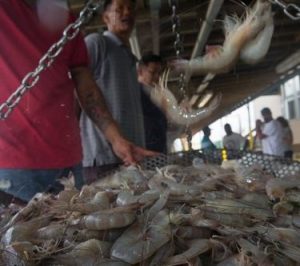
Louisiana shrimpers avert strike but their catch hits all-time low
Louisiana shrimpers are getting a little more money for their catch – but a lot less of a catch. The summer has been a roller coaster for the state’s shrimp industry. Last month, shrimpers threatened to strike if prices continued their steep decline, reaching levels early this year that hadn’t been seen since the 1980s. But a slight uptick – about a nickel more per pound of shrimp – placated many shrimpers. “It pacified them from doing anything,” Acy Cooper, a Venice shrimper and president of the Louisiana Shrimp Association, said Thursday (Sept. 6). “They’re kind of good with it, but not good with it, if you know what I mean.” >click to read<12:49

Bid to reduce right whale deaths ‘extremely effective,’ Canadian officials say
A year after the population of critically endangered North Atlantic right whales suffered devastating losses, Canadian officials say measures taken this season to protect the species have worked. With the summer fishing season in the Gulf of St. Lawrence drawing to a close, the federal Fisheries Department confirmed Friday that not one whale has died as a result of a ship strike or fishing gear entanglement — the main causes for most of the deaths last season. In all, 17 right whales died last year — 12 of them in Canadian waters,,, The federal government responded with a series of protection measures, which included speed restrictions for boats, increased surveillance and a series of closures of fishing areas where right whales were spotted. >click to read<11:36

Wahle named director of the Lobster Institute at the University of Maine
University of Maine marine sciences research professor Richard Wahle has been named director of the University of Maine’s Lobster Institute, effective Sept. 1. He succeeds Robert Bayer, who has directed the institute since 1995 and is retiring from UMaine this year. Wahle joined UMaine’s School of Marine Sciences in 2009. He is based at the University’s Darling Marine Center, where he will continue to teach and conduct research. In 1989, Wahle founded the American Lobster Settlement Index, a program that now monitors the number of juvenile lobsters that settle to the seafloor at over 80 sampling sites from Rhode Island to Atlantic Canada. The index sheds light on the ocean processes that deliver lobster larvae to their rocky coastal nurseries, and serves as a predictor of trends in recruitment to the fishery. >click to read<10:36
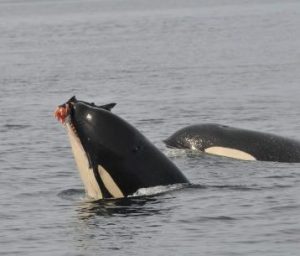
Impossible Choices: The Complicated Task of Saving Both Orca and Salmon
Decades of politics and foot-dragging have stymied the recovery of threatened and endangered Chinook salmon, while an iconic population of killer whales that depends on them veered toward extinction. Now, a last-ditch effort to save the whales may also be what thwarts the recovery of Chinook. The Southern Resident killer whales are dying. An extended family of 75 orcas living year-round in the sea surrounding the San Juan Islands near Seattle, their numbers never fully rebounded since aquariums that later became SeaWorld captured a third of them in the late 1960s. And there are other culprits. Cargo ships and whale-watching boats zip through the Salish Sea, adding noise that interferes with the whales’ ability to locate each other and their prey. The water they live in is toxic. The Puget Sound outside Seattle is tainted with flame retardant, and PCBs and pollutants gush from nearby rivers into the sea. >click to read<10:13






